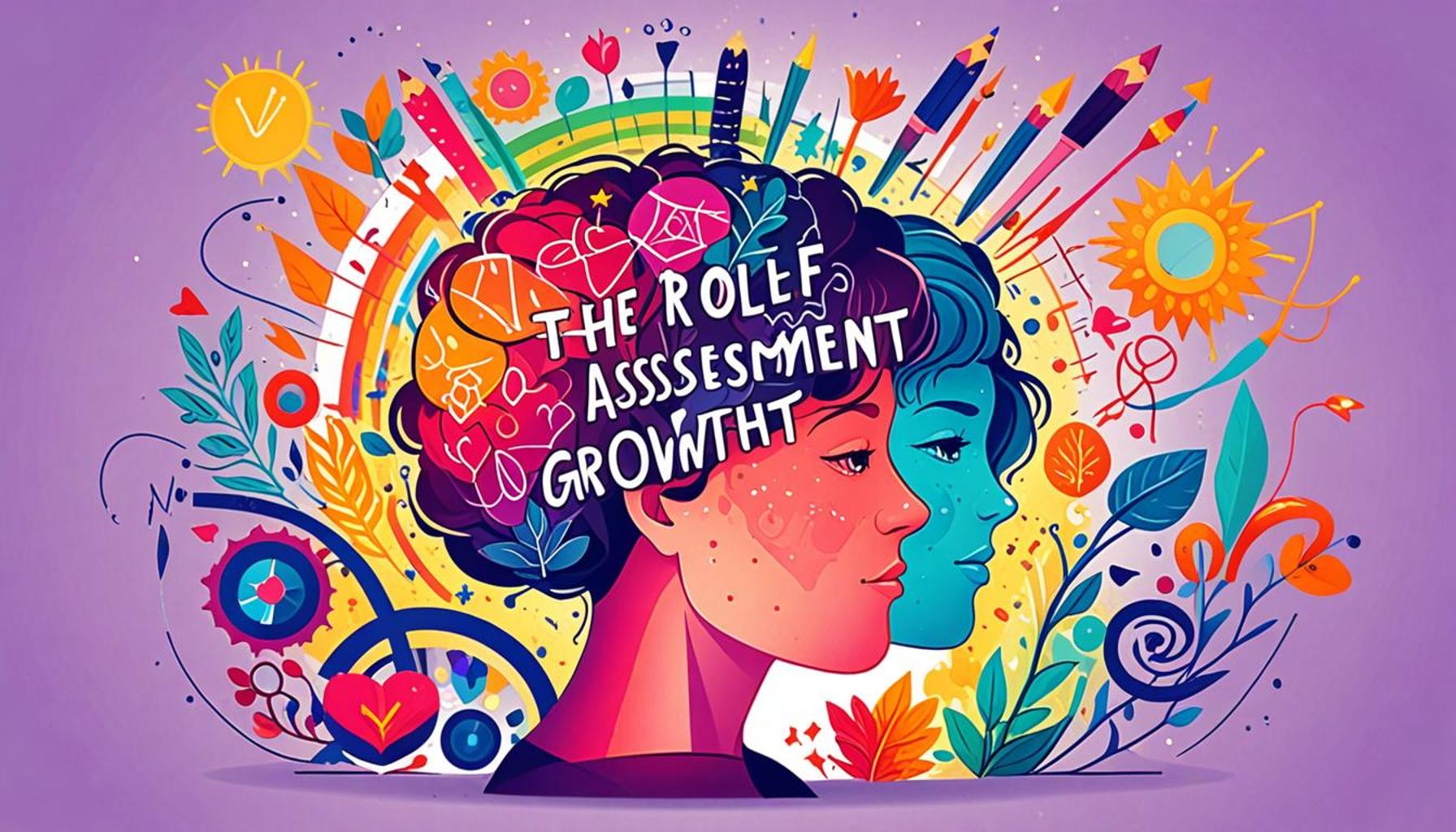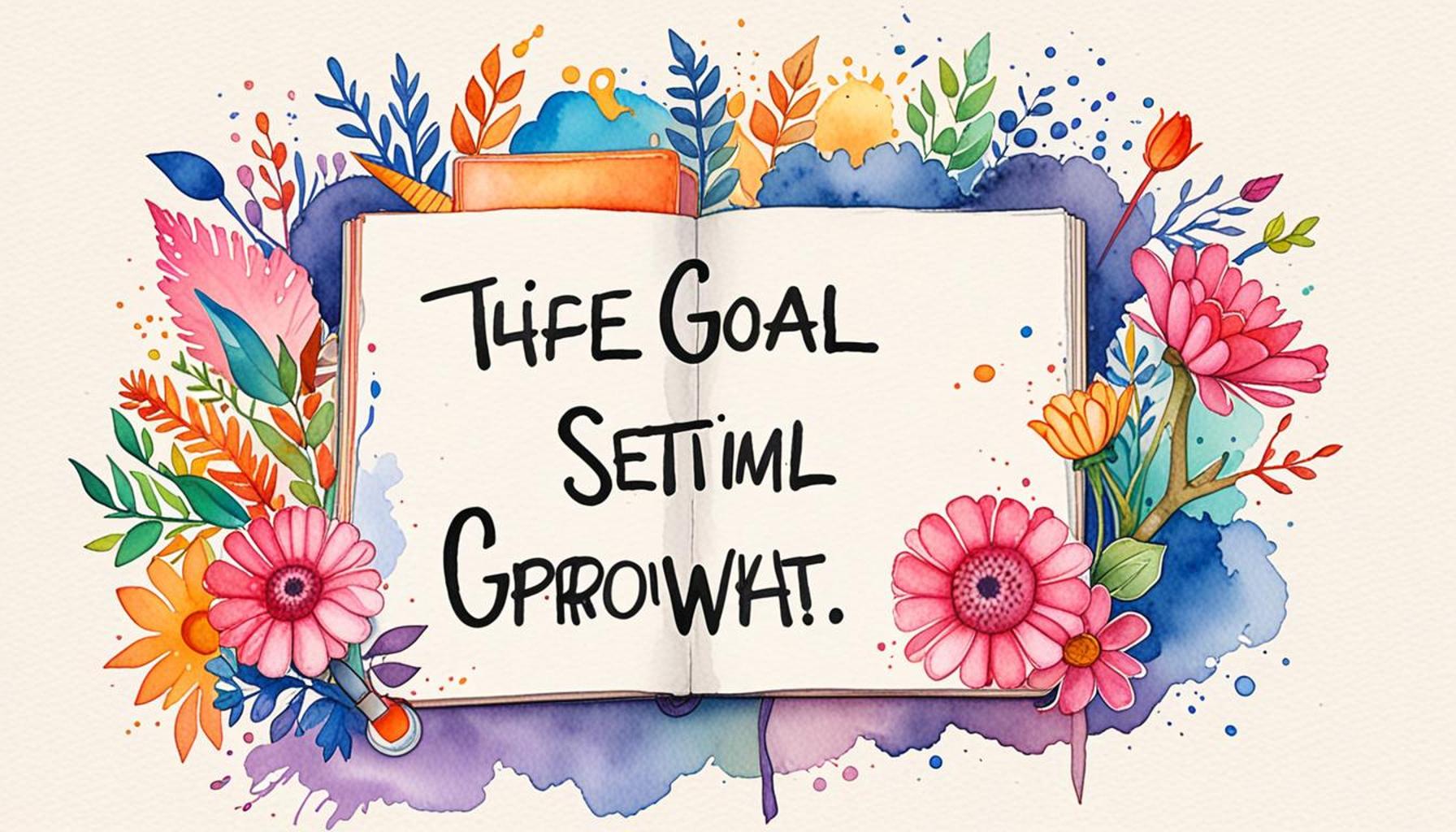The role of self-assessment in redefining goals for continuous personal growth

The Power of Self-Assessment in Personal Development
Self-assessment is not merely an exercise of reflection; it is an essential mechanism for growth that many individuals overlook in their pursuit of self-improvement. Think of it as a compass, offering direction by highlighting where you stand. This practice illuminates not just your strengths, but also your weaknesses, allowing you to navigate your personal and professional journey with clarity and purpose.
Why, you might ask, is self-assessment crucial for personal development? Let’s delve into some of its most significant benefits:
- Clarifies Strengths and Weaknesses: Gaining a precise understanding of what you excel at can sharpen your focus and enhance your effectiveness. For example, if you discover that you have exceptional communication skills, you may choose roles or opportunities that leverage this talent. Conversely, identifying areas of weakness, such as time management, provides you with specific targets to tackle, ultimately contributing to a more well-rounded skill set.
- Sets Realistic Goals: Self-assessment guides you in establishing achievable objectives that align with your unique abilities and aspirations. For instance, a student in Nigeria preparing for university may assess their academic strengths and weaknesses to create a tailored study plan that enhances their chances of admission into their preferred school.
- Enhances Motivation: By regularly tracking your progress and celebrating small victories, self-assessment cultivates an intrinsic motivation to strive for more significant achievements. A simple win, such as successfully completing a challenging project at work, can reignite your passion and commitment to personal growth.
In Nigeria, where the hustle and aspiration for personal development resonate across diverse sectors, from education to entrepreneurship, the practice of self-assessment is paramount. Consider the young entrepreneur navigating the competitive landscape of Lagos; conducting regular self-assessments enables them to understand their current position and informs strategic decisions that can lead to greater success.
Moreover, the incorporation of self-assessment into daily routines fosters a culture of reflection and ongoing improvement. It creates not only individual growth but encourages collective advancement within communities as well. For example, community leaders who engage in self-assessment can better understand the needs of their constituents, thereby designing programs that effectively address community challenges.
Ultimately, embracing self-assessment is a transformative journey that can unlock your full potential, both personally and professionally. Engaging deeply with this process can lead to a more fulfilled, productive, and purpose-driven life. As you embark on this path, remember that the insights gained through honest self-reflection are invaluable stepping stones to achieving your dreams.
LEARN MORE: This related article may interest you
Understanding Self-Assessment as a Cornerstone of Growth
In today’s fast-paced world, where the pursuit of success often overshadows introspection, self-assessment emerges as a vital practice for anyone seeking to redefine their goals. It serves as a mirror reflecting not just who you are, but who you can become. Within the context of personal growth, self-assessment enables individuals to re-evaluate their aspirations and craft strategies that align with their evolving identities and circumstances.
Consider this: as you navigate through various stages of life, your goals naturally shift. What motivates you as a university student may not resonate in the same way as you transition into the corporate world or embark on entrepreneurial ventures. Therefore, regularly evaluating your skills, passions, and challenges becomes essential to ensure that your goals remain relevant and attainable. Here are several key dimensions in which self-assessment plays a crucial role:
- Adapting to Change: Life is dynamic; your goals must be too. Engaging in self-assessment frequently allows you to pivot when circumstances shift. For instance, a professional working in Lagos’ tech sector may find their initial goal of landing a specific job gradually morphing into a desire to launch their own startup. Regular assessments help identify the steps needed to meet this new objective.
- Fostering Accountability: Self-assessment holds you accountable to yourself. By documenting your progress and reflecting on your achievements and failures, you create a personal accountability system. This is particularly significant in communities across Nigeria where societal and familial expectations often influence individual goals. A young graduate, for example, may assess their readiness for the job market, hold themselves accountable for skill acquisition, and ultimately drive their success.
- Encouraging Lifelong Learning: Self-assessment underscores the importance of continuous learning. Acknowledging gaps in your knowledge or skills creates a roadmap for professional development. The ability to embrace lifelong learning is crucial, especially in Nigeria’s competitive job market, where adaptability is key. Individuals who take ownership of their learning journey are empowered to pursue additional training or education that can open new doors.
An invigorating aspect of self-assessment is that it allows individuals to carve out a unique identity in their personal and professional lives. For instance, artisans in Nigeria who consistently evaluate their skills can innovate their craft, attract more clients, and enhance their contributions to local economies. By adapting goals based on self-reflection, they can set specific targets that resonate more deeply with their evolving capabilities and market demands.
In essence, the role of self-assessment stretches beyond mere goal-setting; it serves as a transformative process that redefines not only what you aim to achieve, but how you plan to get there. The journey that begins with a thorough evaluation of self can lead to profound insights, guiding you toward a future that is not just envisioned, but actively created. As you delve deeper into the art of self-assessment, remember that it is a critical tool for continuous personal growth, ensuring that your aspirations are always aligned with your truest self.
The Importance of Regular Self-Assessment
Self-assessment is not a one-time activity but a continuous process that enables individuals to reflect on their progress and adapt their goals accordingly. By engaging in regular self-assessment, individuals can identify their strengths and weaknesses, allowing them to make informed decisions about their personal development paths. This practice fosters a mindset of adaptability and growth, crucial for navigating the complexities of personal and professional life.Additionally, frequent self-assessment allows individuals to stay aligned with their evolving goals and values. As life circumstances change, so too can personal aspirations. By regularly evaluating their objectives, individuals ensure they remain relevant and motivating. This proactive approach not only enhances self-awareness but also promotes mental resilience, a key attribute for overcoming challenges and seizing opportunities for growth.Incorporating self-assessment practices, such as journaling, setting milestones, and seeking feedback, can deepen one’s understanding of personal growth trajectories. These tools aid in tracking progress over time and facilitate honest reflections about what works and what doesn’t. Furthermore, they encourage personal accountability, essential for maintaining momentum in the pursuit of continuous improvement.
Creating a Self-Assessment Framework
To effectively leverage self-assessment for redefining goals, individuals should establish a structured framework. This framework can include:1. Setting Clear Objectives: Define specific, measurable, attainable, relevant, and time-bound (SMART) goals that serve as benchmarks for evaluation.2. Regular Check-ins: Schedule regular intervals to review progress toward these goals, whether weekly, monthly, or quarterly, allowing for adjustments as needed.3. Feedback Mechanisms: Utilize peer feedback or mentorship relationships to gain different perspectives on personal development, enriching the self-assessment process.This structured approach transforms self-assessment from a mere reflection into a strategic tool that actively guides personal growth. With the right methods in place, individuals can harness self-assessment to not only redefine their goals but also lay a solid foundation for sustained achievement and fulfillment.
| Category | Benefits |
|---|---|
| Increased self-awareness | Understanding your strengths and weaknesses improves decision-making. |
| Goal alignment | Ensures personal goals remain relevant to changing life circumstances. |
| Enhanced accountability | Regular assessments foster a sense of ownership and commitment. |
| Resilience building | Effective self-reflection prepares individuals for setbacks and challenges. |
With these components, individuals can create a comprehensive self-assessment strategy that supports continuous personal growth and achievement.
ADDITIONAL INSIGHTS: Expand your understanding here
Harnessing the Power of Self-Assessment for Goal Redefinition
As we delve deeper into the significance of self-assessment in the journey of personal growth, it becomes evident that its power lies not only in reflection but also in action. The insights gleaned from honest self-evaluation pave the way for adjusting ambitions and setting new, more meaningful targets. For many individuals, especially in Nigeria, this transition can be a transformative experience.
One particularly vital aspect of self-assessment is its role in identifying strengths and weaknesses. Many individuals go through life without fully realizing their unique skill sets or the areas requiring improvement. Engaging in self-assessment can unveil hidden talents or untapped potential. For instance, an individual working in a service-oriented job may uncover remarkable communication skills that could be better leveraged in a managerial position. By acknowledging both strengths and weaknesses, they can align their goals accordingly to make the most informed decisions about their career trajectory.
Furthermore, data-driven decision-making emerges as a key principle when self-assessing personal goals. In a technology-savvy world, leveraging various data sources—whether from online personality assessments, productivity tools, or performance apps—can enrich the self-assessment process. These tools allow individuals to track progress over time, observe trends, and recognize patterns in their behavior. A freelancer in Nigeria, for example, may use project management software to evaluate their productivity, identifying peak performance times and clients that yield the best outcomes. By analyzing such data, they may refine their career goals to maximize success.
Characteristically, self-assessment also promotes the value of setting SMART goals—Specific, Measurable, Achievable, Relevant, and Time-bound. Once individuals possess a clearer understanding of their skills and aspirations, they can reframe their goals using this methodology. A young entrepreneur in Lagos may initially set a vague objective to “grow their business.” Through rigorous self-assessment, they can determine more defined goals, such as “increasing monthly sales by 20% in the next quarter.” By establishing clarity around their objectives, they set a course for success that is both motivating and manageable.
- Enhancing Emotional Intelligence: Self-assessment fosters emotional intelligence by encouraging individuals to reflect on their feelings, responses, and motivations. This heightened self-awareness is especially beneficial in collaborative work environments, where understanding one’s impact on others can lead to stronger interpersonal relationships and team dynamics.
- Building Resilience: Through self-assessment, individuals can learn to embrace failures as learning opportunities rather than setbacks. By reframing challenges in this way, they cultivate resilience, an invaluable trait for navigating the twists and turns of personal and professional pursuits.
- Cultivating Clarity of Purpose: Engaging in routine self-assessment leads to a clear articulation of life’s purpose. In Nigeria, where cultural and societal expectations can sometimes lead to disillusionment, redefining personal goals through self-reflection can help individuals remain aligned with their true desires and aspirations.
In summary, self-assessment is not merely reflective practice; it is a driving force for transformation that empowers individuals to redefine their goals. Whether unlocking hidden talents, utilizing data for informed decisions, or fostering emotional intelligence, every dimension of self-assessment plays a critical role in the journey toward continuous personal growth. For Nigerians navigating a landscape rich with opportunities and challenges, self-assessment is essential for staying true to one’s path and evolving with purpose.
LEARN MORE: This related article may interest you
Conclusion: The Transformative Nature of Self-Assessment
In conclusion, the journey of continuous personal growth is intricately woven with the practice of self-assessment. This powerful tool acts as both a mirror and a compass, allowing individuals to reflect deeply on their strengths and weaknesses while guiding them toward clearer and more achievable goals. As highlighted throughout this article, self-assessment facilitates a profound understanding of one’s unique capabilities, enabling the identification of unrealized potential that can be harnessed for greater success.
Moreover, the incorporation of data-driven decision-making into the self-assessment process empowers individuals to set SMART goals that are not only realistic but also aligned with their passions. In the fast-evolving context of Nigeria, where the landscape is brimming with opportunities yet rife with challenges, this clarity of purpose is essential for navigating one’s personal and professional aspirations. By fostering qualities such as emotional intelligence and resilience, self-assessment enables individuals to embrace change and adapt to setbacks with a growth mindset.
Ultimately, self-assessment is not just a solitary act; it cultivates a culture of ongoing development and reflection that can lead to fulfilling, purpose-driven lives. As individuals embark on this transformative journey, the essential insight remains clear: regular self-reflection is vital for redefining goals and achieving sustainable personal growth. For anyone looking to elevate their journey in Nigeria or beyond, embracing self-assessment can be the first step towards discovering a life rich in achievement and satisfaction.


